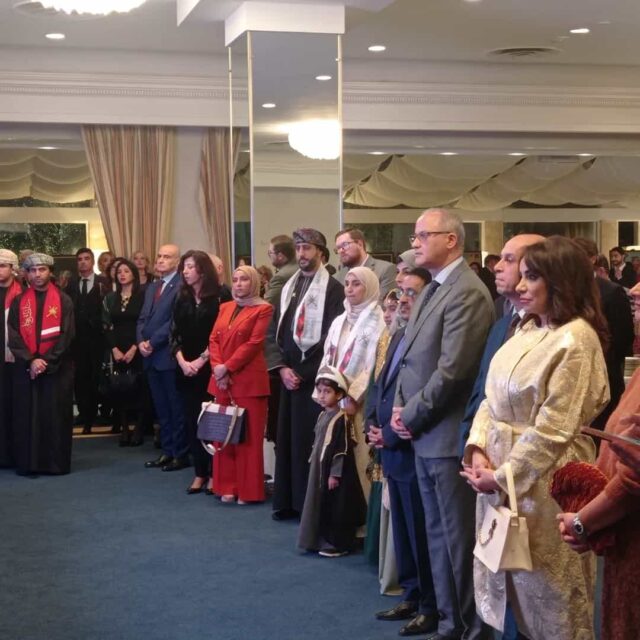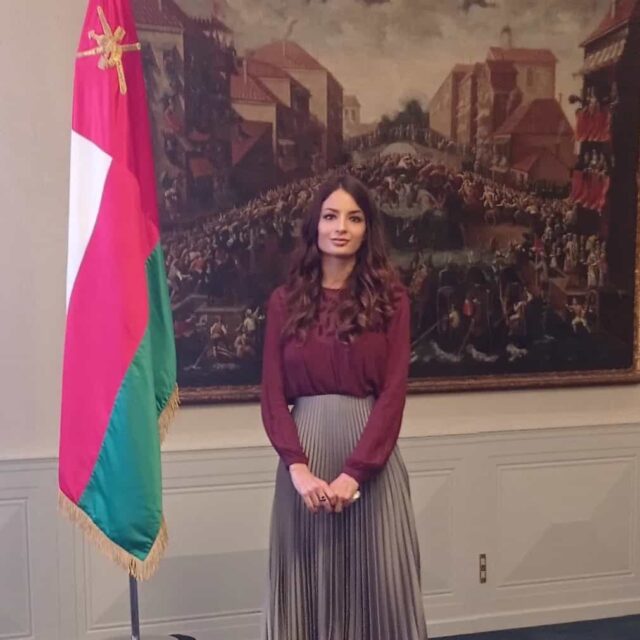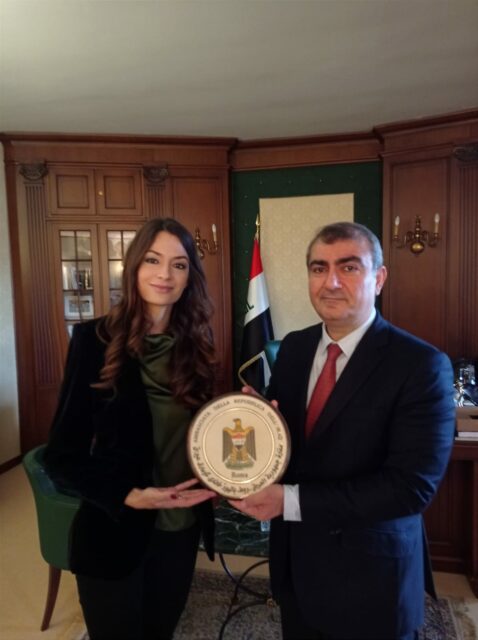
SpecialEurasia has been actively involved in the geopolitical analysis and consulting about the Middle East, aiding the decision-making processes of both private entities and public institutions. Predicting future scenarios within specific geopolitical settings requires extensive knowledge of the context and ongoing HUMINT efforts, which encompass gathering information from field sources and maintaining open communication with the governments involved in current events.
Regarding the war between Israel and Hamas, erupted on October 7th, 2023, SpecialEurasia has been engaging with representatives from different regional actors. Most recently, our team met with delegates from the Arab League, including the Ambassadors of Oman and Iraq.
Overseeing the Persian Files ISSN 2975-0598 project for a considerable period, SpecialEurasia Managing Director Silvia Boltuc has focused on building relationships with these nations to comprehend their perspectives better.
The Meetings with Omani and Iraqi representatives

Regarding the situation in the Gaza Strip, the diplomatic representatives of the Sultanate of Oman and the Republic of Iraq have advocated for an immediate ceasefire, the creation of access corridors for essential supplies like food, water, and medicine, and the establishment of an officially recognised Palestinian state, reflecting their respective positions.
During the celebration of the 53rd Omani National Day attended by SpecialEurasia’s Managing Director, H.E. Nazar Bin Asjulanda Majid al-Said shared insights on Oman’s strategic plan Vision 2040 and highlighted Muscat’s approach to addressing present global challenges, such as energy diversification, desertification, regional peace process, trade and transport corridors.
Oman is a member of the Gulf Cooperation Council (GCC), a regional, intergovernmental, political, and economic union comprising also Bahrain, Kuwait, Qatar, Saudi Arabia, and the United Arab Emirates.
The GSS stands as a linchpin in contemporary geopolitics because of its multifaceted significance. Foremost, this union has a pivotal role in defence and geopolitical affairs extending beyond safeguarding its own interests, encompassing a broader responsibility for the interests of the United States and its allies.
This collective responsibility is underlined by the strategic geographical positioning of the GCC countries, overlooking vital waterways that hold immense importance in global trade and security.
Moreover, the GCC’s economic resilience and substantial financial flows have played a crucial role in mitigating the impact of global crises on numerous countries in the region since 2008.
The Gulf Arab monarchies have an important significance in China’s grand geoeconomic strategy and the Belt and Road Initiative. As a nexus of economic and military implications, the GCC occupies a central position in shaping the developing dynamics of international relations.

In an extensive private meeting with the Iraqi Ambassador Siwan Barzani, SpecialEurasia Managing Director engaged in discussions concerning areas of cooperation between Italy and Iraq, Baghdad’s measures against terrorism, collaboration between Iraq and NATO, Islamophobia and Western media coverage of the Middle East.
Italy’s historical involvement in Iraq has a long-standing foundation in military operations, which has positioned the country as a prominent player in foreign military engagements, second only to Lebanon.
Beyond military endeavours, Italy has demonstrated a commitment to humanitarian and security-related activities within the region. Notably, Italian efforts extend to the protection and conservation of Iraq’s rich historical and archaeological heritage.
Iraq holds profound geopolitical significance, propelled by a confluence of factors. Its strategic location in the Middle East, substantial oil reserves, and rich historical legacy collectively contribute to its pivotal role in global affairs.
Nevertheless, the geopolitical landscape of Baghdad has been defined by a turbulent history, characterised by conflicts, external interventions, and internal divisions that foreign actors has exploited. This has resulted in a geopolitical narrative defined by vulnerability, fragmentation, and interference from external powers.
Iraq’s membership in the OPEC cartel and its significant oil reserves further elevate its geostrategic importance, exerting a substantial influence on the global economy. Moreover, the nation’s diplomatic ties with neighbouring countries position it as a potential platform for regional dialogue and understanding, emphasising its broader geopolitical significance.
Notably, Iraq’s allure has attracted the attention of major global powers, including the United States, Russia, and European nations such as Italy and France, the latter of which has a significant economic stake, relying on Iraq as one of its major crude oil suppliers.
Conclusion
The active engagement with representatives from Arab and Muslim countries, specifically Oman and Iraq, stands as a fundamental aspect of our SpecialEurasia’s commitment to comprehend local geopolitical intricacies.
The interactions with these regional counterparts exemplify our dedication to leveraging primary sources and insights from local communities and representatives in the Middle East. This approach is integral to our organisation’s geopolitical framework and methodologies, meticulously crafted for the assessment of regional and country risk.
By incorporating firsthand information and perspectives, we strengthen our ability to produce robust reports that substantiate and enhance the decision-making processes of our stakeholders. This proactive engagement not only underscores our commitment to accuracy but also reinforces the depth and reliability of our analyses in navigating the complex landscape of regional geopolitics.
Do you like SpecialEurasia reports and analyses? Has our groundbreaking research empowered you or your team? Now is your chance to be a part of our mission! Join us in advancing independent reporting and unlocking the secrets of Eurasia’s complex geopolitical landscape. Whether through a one-time contribution or a monthly/yearly donation, your support will fuel our relentless pursuit of knowledge and understanding. Together, let’s pave the way for a brighter future. DONATE NOW and secure your place in shaping the geopolitical narrative.



